Make Your Experiences Count. They Can Change the World.
LET’S BRING ALL OF OUR KNOWLEDGE AND EXPERIENCES TOGETHER.
TOGETHER WE KNOW MORE. TOGETHER WE ACHIEVE MORE. TOGETHER WE DO BETTER.
LET’S BRING ALL OF OUR KNOWLEDGE AND EXPERIENCES TOGETHER.
TOGETHER WE KNOW MORE. TOGETHER WE ACHIEVE MORE. TOGETHER WE DO BETTER.
Published: July 2, 2020
If you have ever wondered why parenting matters then read on…
In 1996, the WHO declared that violence was a public health problem. The UN states that “peaceful, just and inclusive societies are necessary to achieve the Sustainable Development Goals (SDGs)”. People everywhere need to be free of fear from all forms of violence. UNICEF work with Partner Organisations to reduce and eliminate violence against children and to promote children’s rights.
Some facts: Did you know that…
In PNG, research by UNICEF highlighted the high incidence of harsh parenting as a cause of concern regarding the positive outcomes for children. Any form of violence can impact children’s development and well-being. Funding for UNICEF PNG, enabled a strong partnership with the Catholic Archdiocese of Madang to support inclusive early education, setting up integrated early childhood development schools (IECD) and parenting programs.
The Diocese is well placed as an implementing partner, due to trusted and well-established networks of the many parishes, with support from parish priests, parish pastoral council leaders and community leaders. Such connections make reaching parents in even remote, rural areas possible.
My role as TA has been to support the team within the Catholic Children’s Ministry (CCM) in the Diocese in Madang, to evaluate current programs and work together on capacity building. Unfortunately, my time was curtailed due to the emergent corona crisis. However, I was there long enough to observe the dedication shown by the department to further early childhood education, raise awareness in safeguarding children, and also support women. The main focus during my limited assignment, was the parenting program, known as P4CD – Parenting for Child Development.
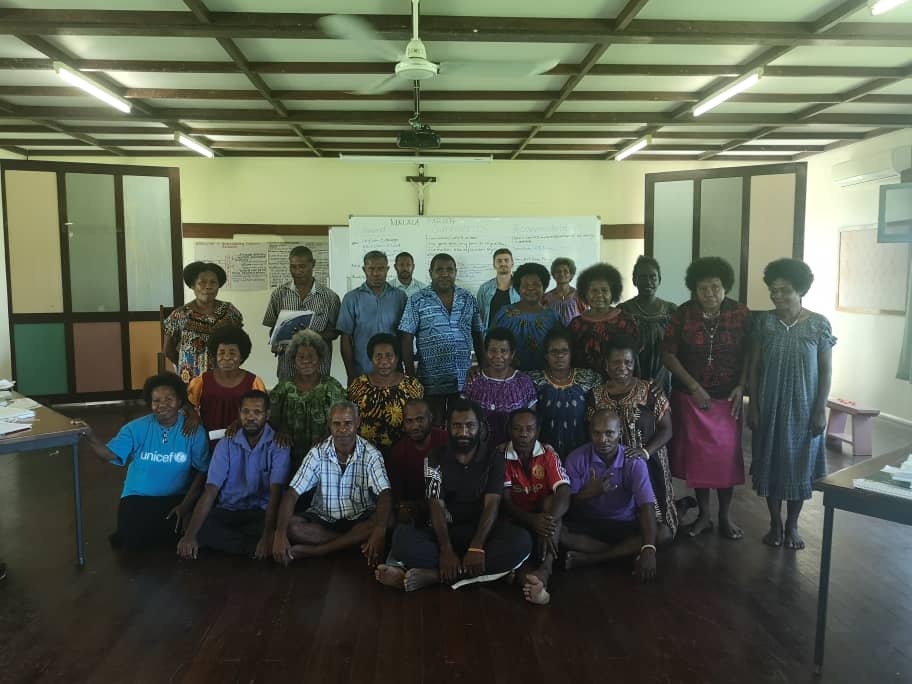
Parenting programs can have positive outcomes for families and communities. The Menzies School of Health Research (Darwin) was commissioned in 2016 to carry out qualitative research across 4 provinces in PNG. The objective was to assess the local needs in terms of culturally appropriate parenting programs. Following consultation and refining materials, Parenting for Child Development – P4CD was consolidated as an evidence-based program.
In cooperation with UNICEF, the Diocese has recruited and trained volunteers as facilitators, implementing the pilot programs between 2016 and 2019. The sessions have been running up and until March 2020, when corona lockdown measures came into action.
Parenting sessions are designed to be participative and fun, whilst dealing with sometimes challenging topics. Roleplays for example, give the opportunity to see situations from a child’s perspective. Feedback from parents shows that this can be a “game-changer’. Pivotal moments such as these, encourage parents and carers to change how they deal with situations, and how they perceive their child’s behavior.
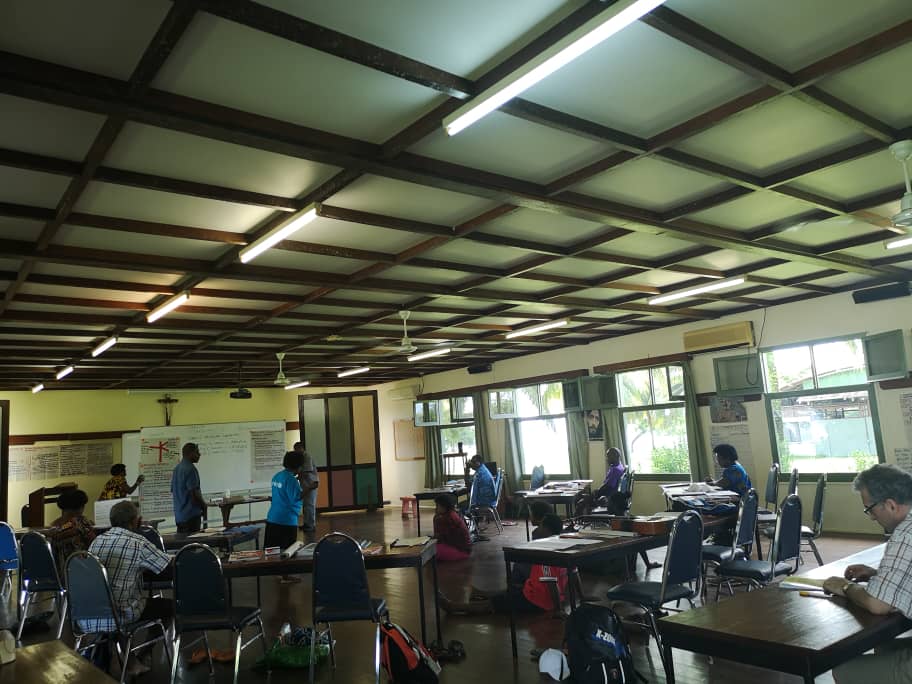
At times the program respectfully challenges stereotypes and culturally accepted views and concepts. It is here that it can be most difficult, but most rewarding when there is a shift in understanding, leading to change in attitudes and behaviors. None more so, than the role of fathers in parenting. Traditionally men in PNG do not get as involved in the early years, except to administer discipline. Following the parenting sessions, many fathers were happy to be more responsive to their children, and to play with them. They are leading the way for a more nurturing emphasis in their communities. They are changing the idea of what it means to be a father.
What are the benefits?
207 parents participated in the pilot program evaluation.
Monitoring and evaluation indicate encouraging outcomes for families. Quantitative analysis of data from pre and post questionnaires, demonstrate a statistically significant difference on several dimensions. Parents describe more positive, harmonious relationships with children / teens, reduced use of harsh or physical punishment in their families, and an increase in their own self-confidence. Parents furthermore report a greater understanding of the importance of the early years for their children’s future, of the social and emotional needs of children, the meaning of safeguarding, as well as their responsibilities as caregivers.
The benefits of early childhood education and stronger families, are not only realised by individual families, but as the government acknowledges, have significance for the whole country. The term “Gutpela Sindaun” means in Pisin (a commonly used language), a good foundation. The early years matter – building a better future for families, for the province, for PNG.
The work of the Diocese contributes to the promotion of the SDGs, both in raising awareness of children’s rights and the importance of the early years through community mobilization, and in their program delivery. In particular the collaborative work of the CCM supports Goals 4,5,16 and 17.
For further information on the SDGs and 2030 vision to transform our world click here.
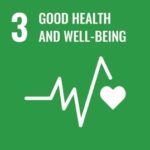
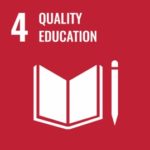
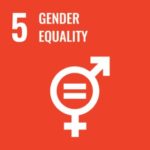
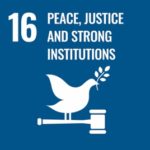
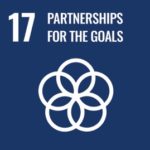
Goal 3: Good health and wellbeing
Parenting sessions also raise awareness on health, hygiene and emotional wellbeing.
Goal 4: Quality education for all
The IECD schools promote inclusive early education for all children, working to sustain a safe, protective and supportive environment. Community mobilization advocates for equal opportunity in education for girls, and their right to remain in education – just like boys.
Goal 5: Gender equality
This is not only a fundamental human right, but mainstreaming gender-responsive pathways, builds a foundation for a peaceful, thriving and sustainable world. Parenting groups support protection and inclusive of girls.
Click here and get to know more about breaking through gender-based barriers by viewing GALS – gender action learning on KNOW-HOW3000.
Goal 16: Peace, Justice & Strong Institutions
Parenting programs support the goal by enabling parents to make changes in their behavior, thereby reducing the incidence of violence against children in the home.
Goal 17: Partnership for the goals
The Diocese works in partnership with a number of stakeholders including the local education department, the community development office, child & family services (safeguarding), Local Level Government and community leaders, police, parents, children, schools, school board of management, pastoral care.
Click here to follow the link to the WHO website on violence and injury prevention, to know more on reducing violence and creating safe, nurturing, relationships between parents and children. There are several reports which can be downloaded.
For more information on partnerships and the goals, visit the Global Partnership for Development by clicking here. Progress report 2019 by OECD and UNDP – strengthening the quality of cooperation to work effectively towards achieving the ambition of the goals.